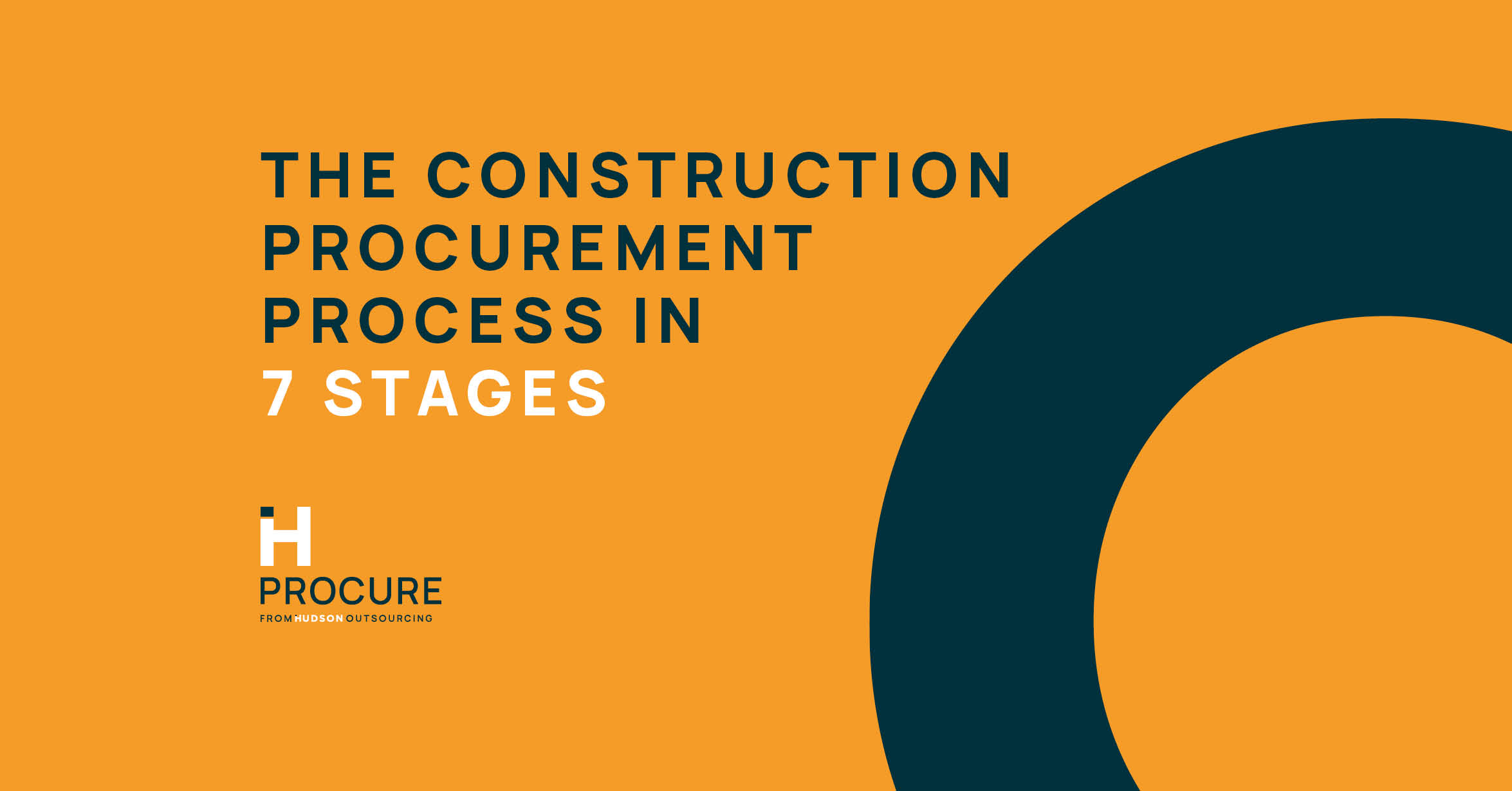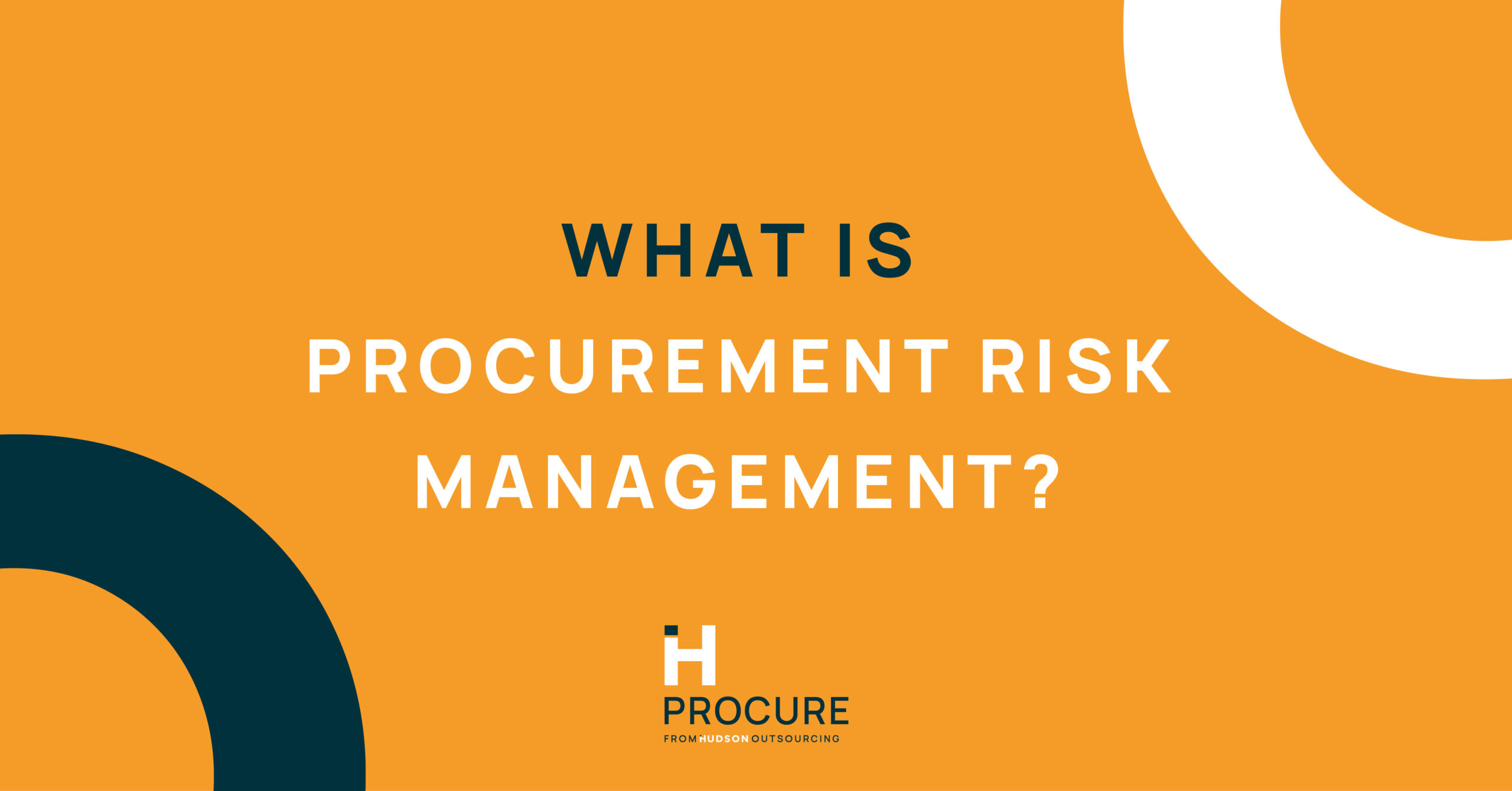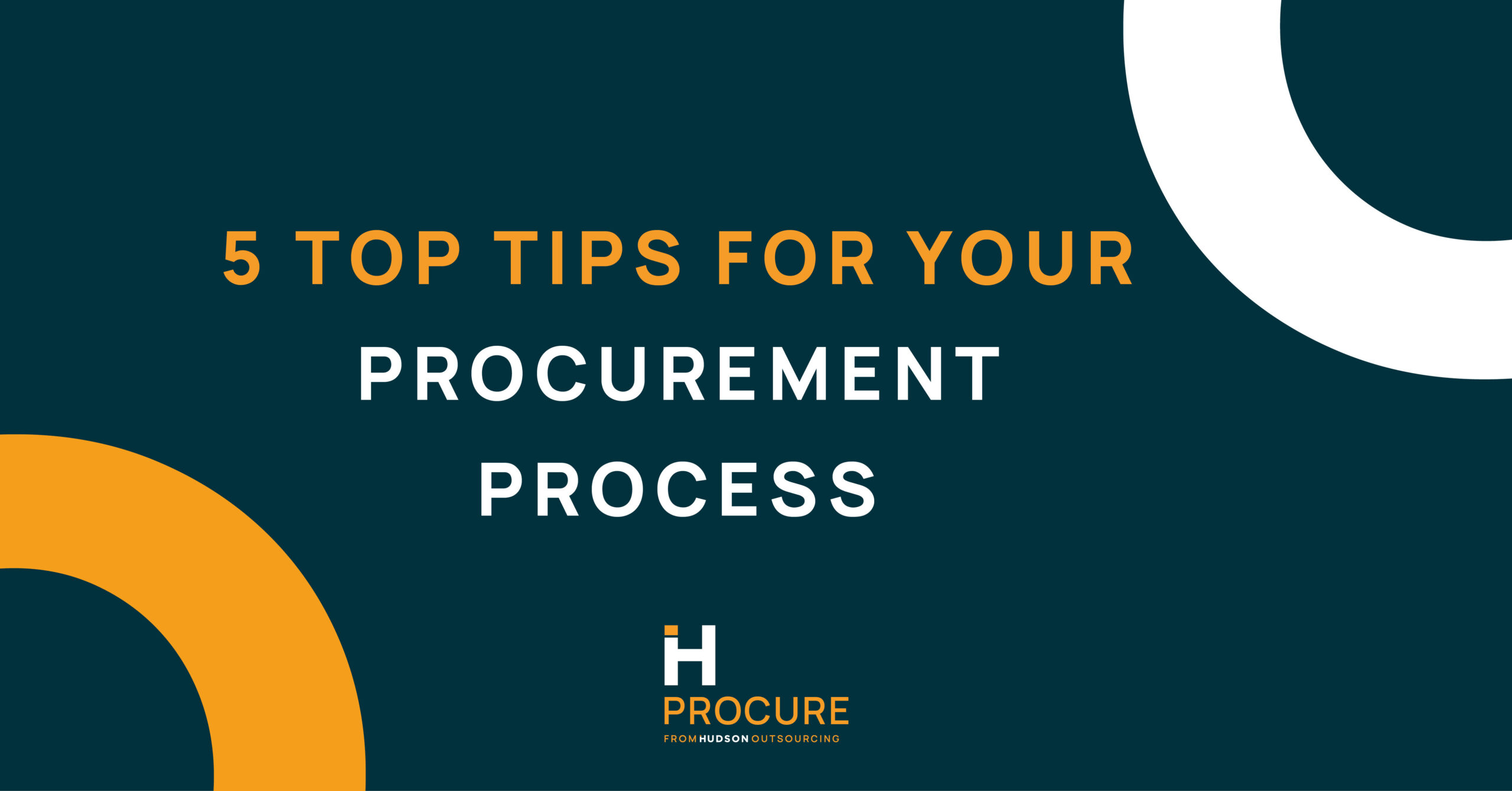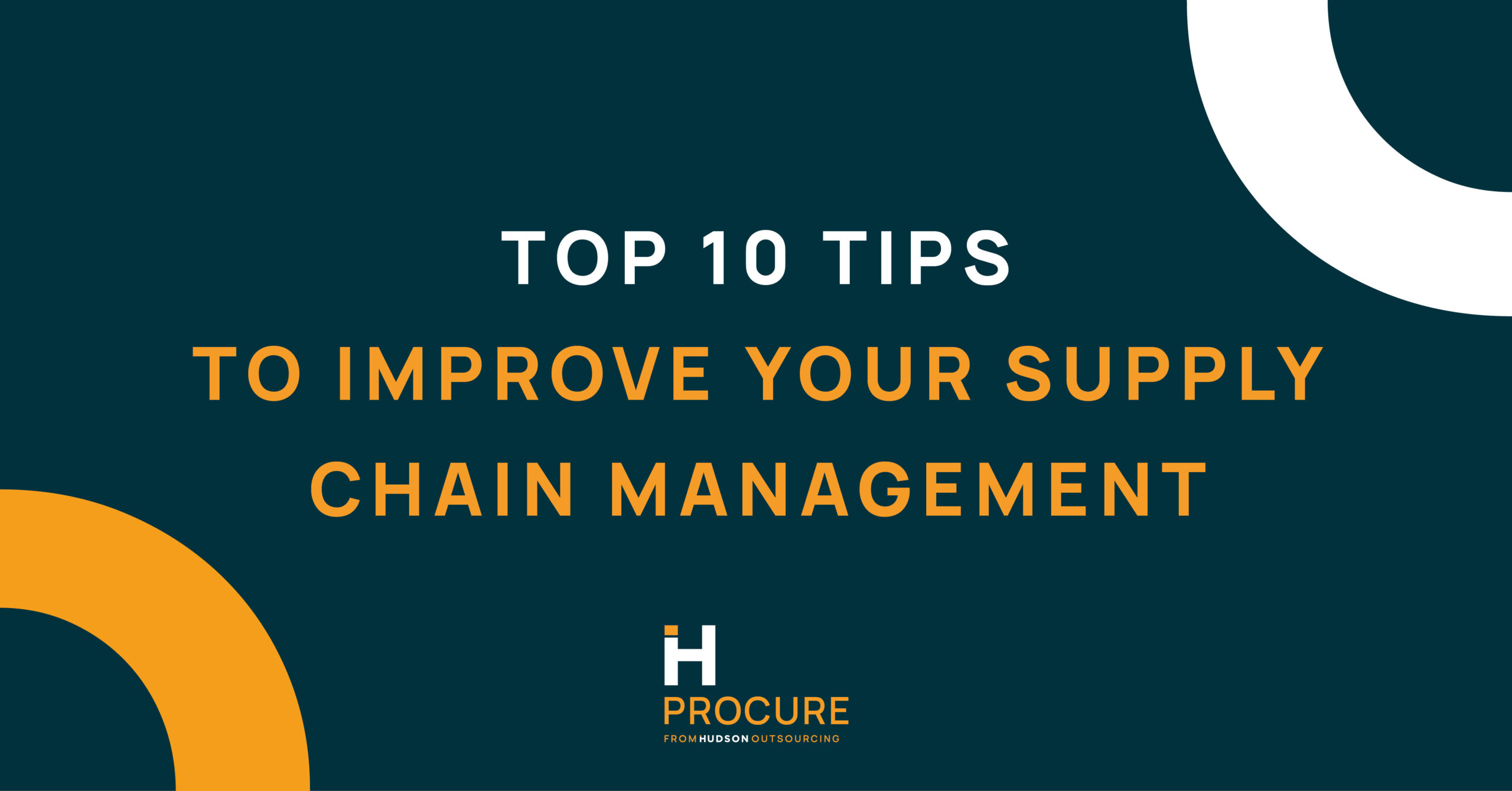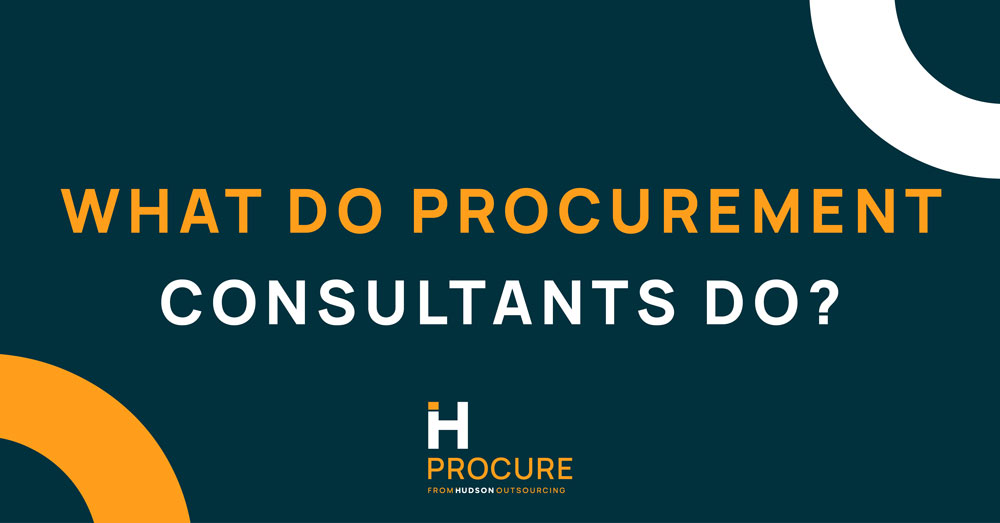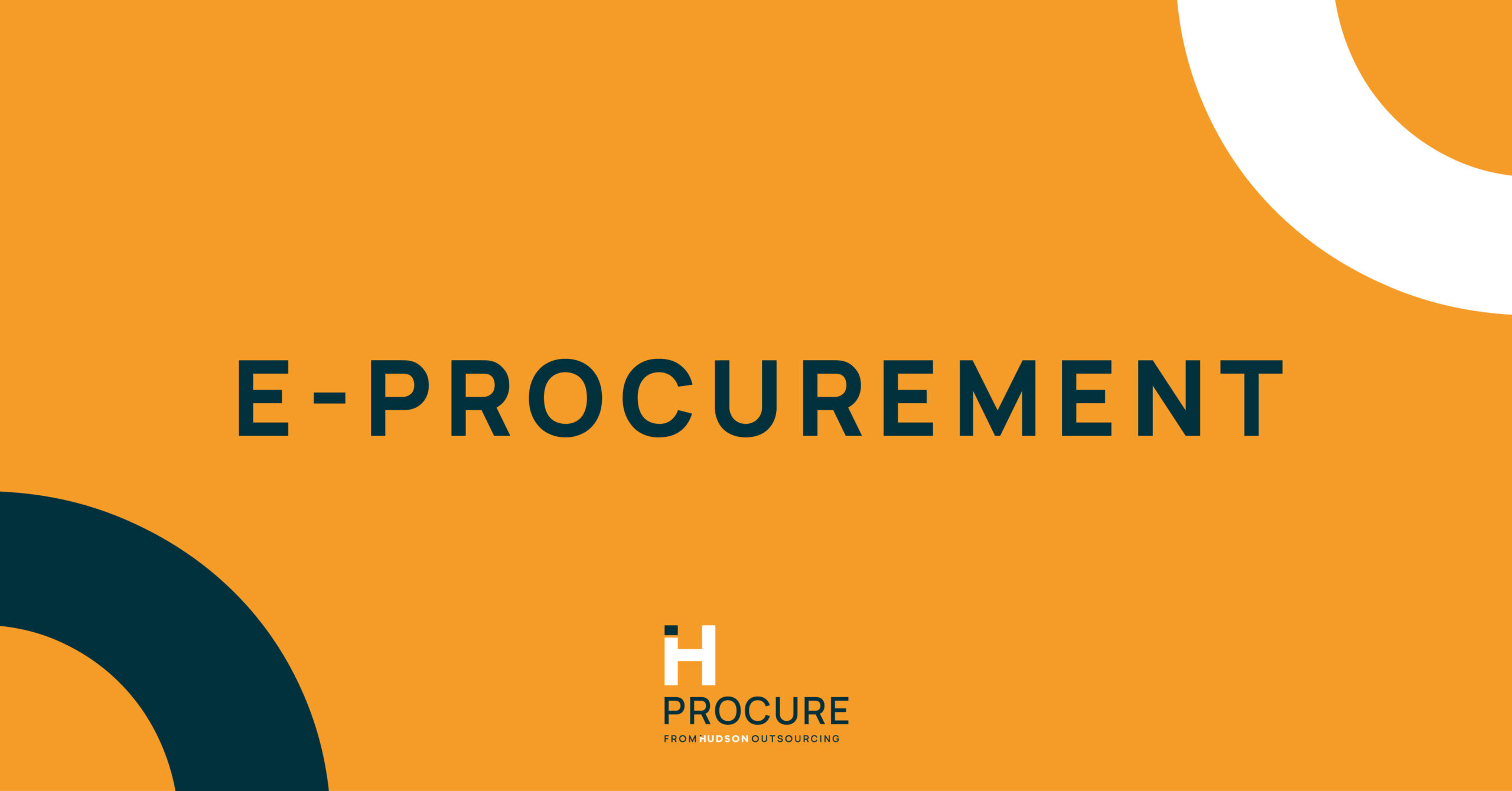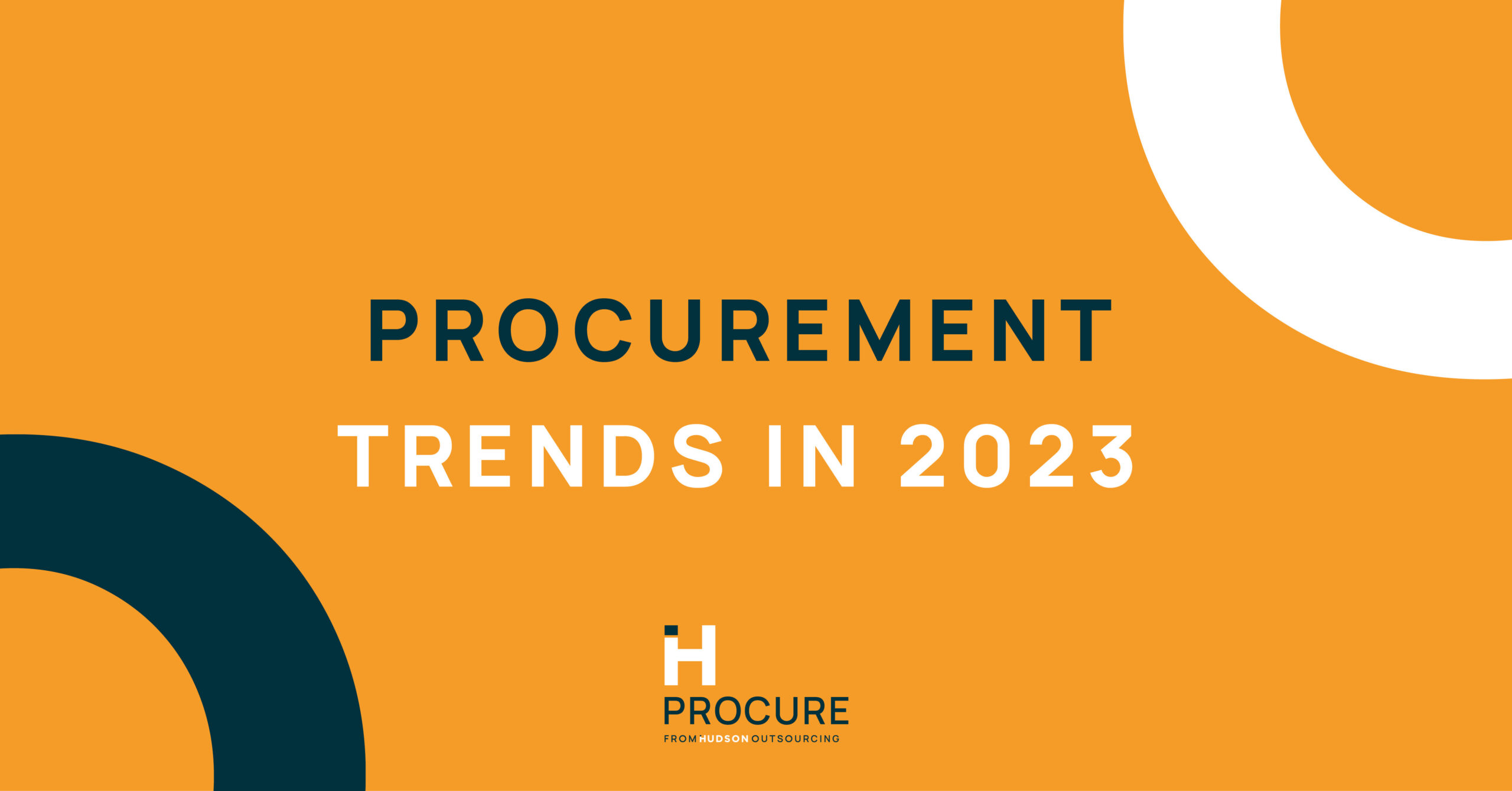7 stages of the construction procurement process
Are you in need of construction services, and want to know more about the construction procurement process?
The procurement process can be difficult to navigate, especially for businesses with limited procurement experience. But luckily for you, Hudson Procure is here to help!
In this blog, we cover seven stages of the construction procurement process. Keep reading to find out what they are!
What’s different about the construction procurement process?
There are many similarities between the construction procurement process and other procurement procedures. In fact, both procurement processes follow mostly the same stages, which are outlined below.
However, a major difference is the PAS-91. This document was introduced in 2010 to streamline the construction procurement process. Basically, it eliminates the need for suppliers to complete pre-qualification questionnaires (PQQs) or selection questionnaires (SQs). Instead, the PAS-91 brings together various questions that are typically asked to assess the suitability of suppliers in this industry.
This document will ask for:
- Company details
- Experience
- Insurances
- Qualifications
- Accreditations.
7 stages of the construction procurement process
-
Identify a business need
First things first, your business needs to establish a need for construction services. What work are you actually looking to procure services for? This is a crucial first step and will help define the rest of the construction procurement process.
-
Define your requirements
At this stage, you need to develop the scope of your requirements. For example, you need to decide the size, scale and complexity of your construction project. You need to think about:
- Budget
- Number of suppliers
- Timescales
- Lots (if applicable).
You don’t need to be an expert in the work. However, if you’re putting the project out to tender, you need to know the basis of your requirements. Otherwise, you’ll struggle to move on to the next stage of the construction procurement process.
-
Create the tender documents
The next stage of the construction procurement process is to create the tender documents. Therefore, it’s important that you fully understand your requirements so that you can easily convey this to potential suppliers.
If you don’t express yourself clearly at this stage, you run the risk of confusing suppliers. As a result, you could receive tender responses from unsuitable businesses.
-
Decide on your budget
It’s important that your budget is realistic and reflects what your business is actually able to pay. Chances are that suppliers will pitch their services at the higher amount. So, whatever that amount is, make sure you can afford it.
On the other hand, you don’t have to disclose the budget in the tender documents. Instead, you could ask suppliers to propose a budget as part of their tender response. This encourages businesses to price their services competitively and could increase value for money for your organisation.
-
Post the opportunity
Now it’s time to publish the tender notice and give suppliers the opportunity to submit a bid. There are different ways that your business can do this. However, one of the most efficient ways is to publish the project through a tender portal.
With Procure Post, you can publish your construction project to Construction Tenders, one of our 11 sector-specific tendering portals. The portal hosts a wide range of projects from the UK’s construction industry. Want to know the best part? Posting your project is FREE – the construction procurement process has never been so simple and efficient.
-
Assess the suppliers
The next stage of the construction procurement process is to evaluate the tender submissions from construction businesses. There are different evaluation processes, however, it’s important that you follow the process outlined in the tender documents. If you’ve informed prospective suppliers of a particular method, you need to stick to it. This is to maintain fairness and transparency.
-
Award the contract
Now it’s time to award the contract to your chosen construction business. It’s important that you inform every supplier of your decision, whether they were successful or not. Alongside this, you need to include appropriate feedback about why the winning bid was chosen over others. This will include the relative advantages of the chosen supplier and how highly they scored against the criteria.
In summary
The construction procurement process has many similarities to the procurement process in other industries. However, in the construction sector, suppliers could be required to complete a PAS-91.
The construction procurement process can be broken down into the following stages:
- Identify a business need
- Define your requirements
- Create the tender documents
- Decide on your budget
- Post the opportunity
- Assess the suppliers
- Award the contract.
Knowing what is involved throughout each of these stages, will help streamline your overall procurement management.
How can Hudson Procure help your organisation with the construction procurement process?
Procure Consult
With Procure Consult, we offer support with tender management and ad-hoc procurement consultancy. Our expert team will manage the end-to-end procurement process or offer assistance with any stage, as and when required.
Procure Health Check
With Procure Health Check, we’ll conduct a full review of the strategic and operational procurement processes within your organisation. We’ll identify the areas that need improvement and help you drive greater value from the procurement process.
Procure Analyse
The purpose of Procure Analyse is to conduct a high-level analysis of your spending activity. We’ll help you understand your current strategic purchasing behaviour and highlight areas that can deliver greater value. Procure Analyse is also offered as part of Procure Health Check or as a standalone service.
Procure Outsourcing
With Procure Outsourcing, we deliver a range of procurement solutions on an outsourced basis, completely bespoke to you. This can range from delivering multiple tender projects as a package to delivering the full procurement function of your organisation.
Procure Post
Are you trying to find a supplier for your project? Post your tendering opportunity onto any of our 11 sector-specific portals for FREE with Procure Post!
Housed by our sister company, Hudson Discover, our portals host thousands of tendering opportunities for organisations of all sizes. For an additional cost, we’ll even help you identify your requirements and find the most suitable suppliers for your business.
Get in touch for a consultation and find out how we can help your business drive better value from procurement.
Check out our other blogs for further Procurement Insights:

